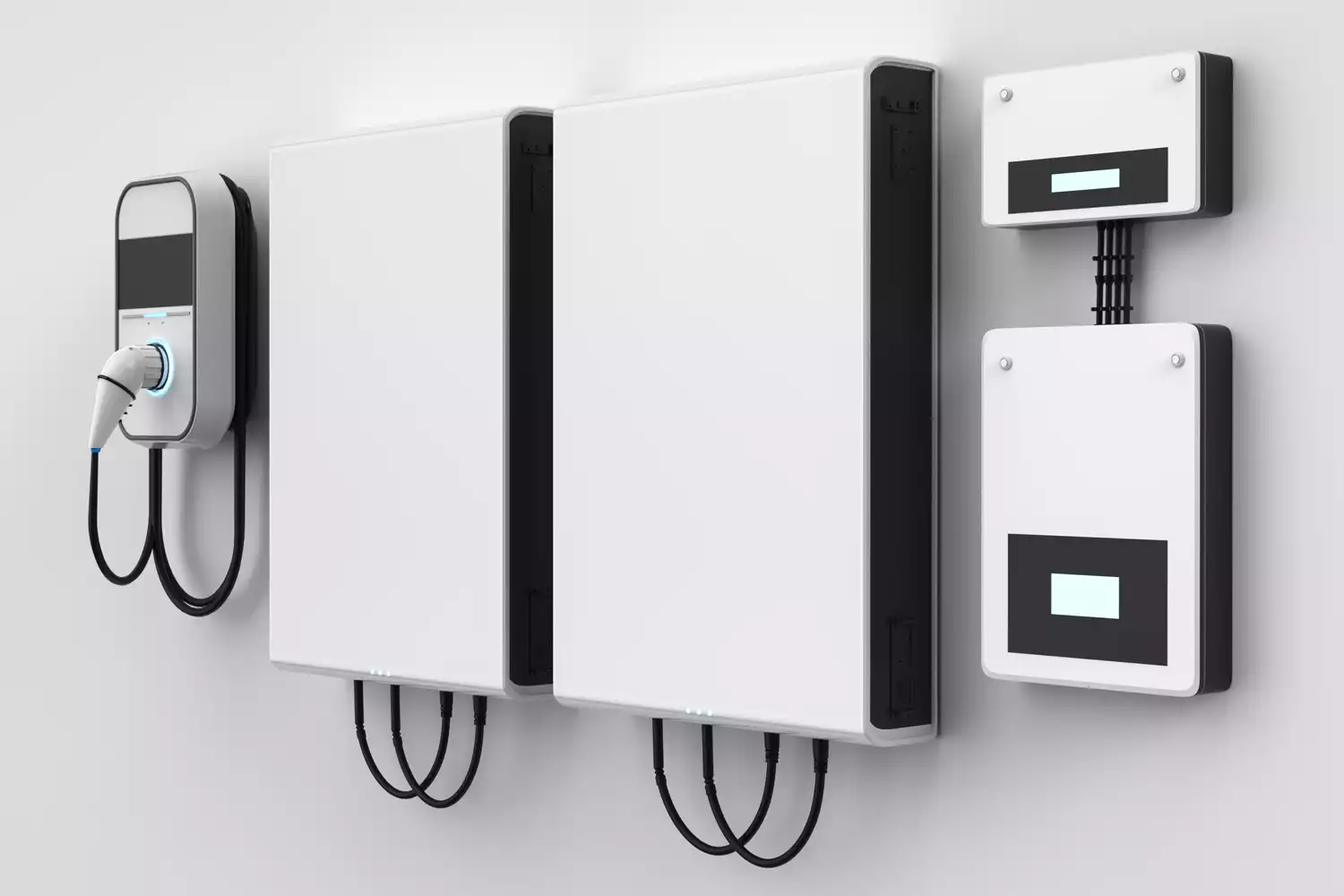Solar Battery Storage

As more households and businesses across the UK invest in solar panels, the conversation is increasingly turning towards solar battery storage. While solar panels generate clean electricity during daylight hours, storage systems allow you to make the most of that energy long after the sun has set. But what exactly is solar battery storage, how much does it cost, and what benefits does it provide?
What is Solar Battery Storage?
Solar battery storage systems are devices that store excess electricity generated by your solar panels. Normally, if you don’t use the electricity as it’s generated, it flows back to the National Grid. With a battery, however, that unused energy is stored and can be drawn upon later.
Think of it as a savings account for your electricity – instead of sending spare power away, you keep it for when you need it most.
Get Your FREE Quote for Solar Panels
Fill in our solar panel quote form, and within 24 hours we’ll design and cost a complete system tailored to your property.
The Benefits of Solar Battery Storage
1. Greater Energy Independence
Without storage, most solar households still rely on the grid during evenings or cloudy days. With a battery, you can power your home well into the night, reducing reliance on your energy supplier. For some homeowners, this can cut grid usage by as much as 60–80%.
2. Lower Electricity Bills
By storing surplus energy and using it later, you buy less electricity from your supplier. With UK electricity prices among the highest in Europe, the potential savings are significant. Some homeowners save hundreds of pounds each year.
3. Protection Against Rising Energy Prices
Energy bills have surged in recent years, and volatility is likely to continue. A battery storage system cushions you against price hikes, since you’re less exposed to peak-time tariffs.
4. Environmental Impact
Every unit of electricity you consume from your solar battery is one less unit you need from fossil-fuel-based power stations. This maximises the environmental benefits of your solar installation and helps the UK transition towards net zero.
5. Backup Power Supply
Some solar battery systems can be configured to provide emergency backup power in the event of a grid outage. While not every system has this feature, it offers peace of mind in areas prone to power cuts.
6. Export Opportunities
Thanks to the UK’s Smart Export Guarantee (SEG), households can earn money by selling surplus electricity back to the grid. With a battery, you have more control over when and how you export, potentially selling at times when tariffs are higher.
How Much Does Solar Battery Storage Cost?
The cost of solar battery storage in the UK depends on several factors, including battery capacity, brand, and whether you’re retrofitting it to an existing solar system or installing it alongside new panels.
On average:
Small batteries (3–4 kWh): £2,000–£4,000
Medium batteries (5–7 kWh): £4,000–£7,000
Large batteries (10–15 kWh): £8,000–£12,000+
Additional installation costs may apply, particularly for retrofitting. However, packages are available that include both panels and batteries at discounted rates compared to purchasing separately.
Factors That Influence Price
-
Battery Size (Capacity) – Larger batteries can store more energy but come at a higher upfront cost.
-
Battery Type – Most modern systems use lithium-ion technology, which is efficient and long-lasting.
-
Brand and Warranty – Premium brands like Tesla Powerwall may cost more but often include longer warranties and smart features.
-
Installation Complexity – Retrofitting may require additional wiring or upgrades to your existing system.
Are Solar Batteries Worth the Investment?
Whether solar battery storage is worth it depends on your household’s energy usage, the size of your solar array, and your long-term goals.
Best Suited For:
-
Homes with high evening electricity use (when solar panels aren’t generating).
-
Properties aiming for greater energy independence.
-
Households looking to maximise savings from their solar panels.
-
Environmentally conscious homeowners who want to use as much renewable energy as possible.
Payback Period
The payback period for a battery varies but typically ranges between 7–12 years. With energy prices high and technology improving, more households are finding that batteries provide solid long-term value.
Additional Considerations
Battery Lifespan
Most lithium-ion batteries last 10–15 years, depending on usage and brand. Manufacturers usually offer warranties of around 10 years.
Smart Features
Some modern batteries integrate with smart home technology, allowing you to optimise when you store, use, or sell electricity.
Future-Proofing
Adding a battery can future-proof your home for upcoming energy technologies, such as vehicle-to-home charging(using your electric car battery as additional storage).
Solar battery storage is fast becoming a key part of the renewable energy conversation in the UK. While the upfront costs can be significant, the long-term benefits – from lower bills and greater energy independence to environmental impact – make it an attractive option for many households.
If you already own solar panels or are considering a new installation, investing in a battery system could be the next logical step. By capturing and storing more of your own clean energy, you’ll be taking control of your electricity use and safeguarding yourself against rising energy prices.
At SolarPanels.co.uk, we’re here to help you explore your options, compare the best battery systems on the market, and find an installation package that delivers the greatest value for your home.
